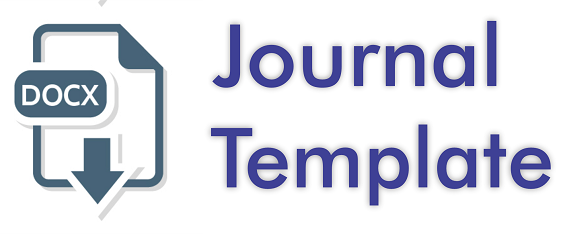Pengaruh Gaya Kepemimpinan, Komunikasi, Disiplin Kerja dan Budaya Organisasi Terhadap Pada Kepuasan Kerja
DOI:
https://doi.org/10.59107/ri.v1i1.12Keywords:
Gaya kepemimpinan, komunikasi, disiplin kerja, budaya organisasi, kepuasan kerjaAbstract
The purpose of this study was to determine the extent to which leadership style, communication, work discipline, and culture influence PT job satisfaction. Bina Thani Nusantara West Passaman. This study consists of her four independent variables:
The only variables related to leadership style, communication, work discipline, organizational culture, and job satisfaction. Path analysis is used as an analysis method. The method of data collection in this study was through the use of questionnaires completed by the respondent, her PT staff. Bina Thani Nusantara West Passaman. Partial test (t-test) results: a) Leadership style has a large positive impact on job satisfaction b) Communication has a large positive impact on job satisfaction c) Job discipline has a large positive impact on job satisfaction d a) organizational culture has a positive impact on job satisfaction; e) management style, communication, work discipline, and organizational culture have a positive impact on job satisfaction
Downloads
References
Anandita. (2021). Pengaruh Iklim Organisasi dan Komunikasi Terhadap Kepuasan Kerja (Studi Pada SMK Kreatif Hasbullah Bahrul Ulum). Junral Inovasi Penelitian, 2(3).
Andriyani, & Adipradana, M. (2021). Pengaruh Disiplin Kerja dan Motivasi Kerja Terhadap Kinerja Karyawan dengan Kepuasan Kerja sebagai Variabel Pemoderasi (Studi Pada Karyawan CV Batik Wahyu Kencana Pekalongan). Diponegoro Journal Of Management, 10(1), 2.
David. (2018). Strategic Management (Edisi 12). Erlangga.
Faules. (2017). Komunikasi Organisasi: Strategi Meningkatkan Kinerja Perusahaan. Remaja Rosda Karya.
Harahap, M. D., & Rudianto. (2021). Pengaruh Komunikasi Organisasi dan Gaya Kepemimpinan Terhadap Kepuasan Kerja Karyawan Metro Tv Sumut. Communication Journal, 4(1), 69–79. https://doi.org/10.30596/persepsi.v
Hariyanto el al. (2021). Pengaruh Budaya Organisasi, Komitmen Organisasi Dan Motivasi Kerja Terhadap Kepuasan Kerja Dan Kinerja Karyawan Rs Aisyiyah Bojonegoro. Jurnal Mitra Manajemen, 5(4), 277–289. https://doi.org/10.52160/ejmm.v5i4.530
Hasibuan. (2017). Manajemen Sumber Daya Manusia (Edisi Revi). Bumi Aksara.
Irwansyah. (2019). Pengaruh Kepuasan Kerja Dalam Memoderasi Motivasi Kerja Dan Penggajian Menurut Perspektif Islam Terhadap Kinerja Karyawan Pt Bni Syariah Cabang Makassar. Assets : Jurnal Ekonomi, Manajemen Dan Akuntansi, 9(1), 49. https://doi.org/10.24252/.v9i1.10127
Krietner. (2019). Perilaku Organisasi. Salemba Empat.
Mukmin, S., & Indra, P. (2021). Pengaruh Gaya Kepemimpinan dan Budaya Organisasi Terhadap Kinerja Karyawan Melalui Kepuasan Kerja Karyawan Sebagai Variabel Intervening. Jurnal Manejerial Bisnis, 2(2).
Prabawa. (2017). Dasar-Dasar Manajemen. Bumi Aksara.
Priansa. (2018). Manajemen SDM dalam Organisasi dan Bisnis. Alfabeta.
Ramadhi, & Amri, A. (2021). Mediasi Kepuasan Kerja: Komunikasi, Kimitmen dan Disiplin Kerja Serta Dampaknya Pada Kinerja Karyawan (Studi Kasus Pada Radio Republik Indonesia (RRI) Padang). Strategic: Journal of Management Sciences, 1(3), 94–112.
Robbins. (2018). Perilaku Organisasi. Salemba Empat.
Sardika. (2021). Budaya Organisasi Terhadap Kinerja Dimediasi Kepuasan dan Loyalitas Kerja Karyawan. Jurnal Ekonomi, Manajemen Dan Akuntansi, 2(2).
Sinambela. (2017). Manajemen Sumber Daya Manusia: Membangun Tim Kerja yang Solid untuk MeningkatkaSn Kinerja. Bumi Aksara.
Sinollah, & Muhammad Ubaitulloh. (2021). Pengaruh Gaya Kepemimpinan dan Kompensasi terhadap Kepuasan Kerja. DIALEKTIKA : Jurnal Ekonomi Dan Ilmu Sosial, 6(2), 79–88. https://doi.org/10.36636/dialektika.v6i2.778
Sugiyono. (2019). Metode Penelitian kuantitatif kualitatif dan R&D (2019th ed.). Alfabeta.
Wibowo. (2018). Manajemen Kinerja (Edisi Ke 5). Raja Grafindo Persada.
Yukl. (2019). Leadership In Organizations. Indeks.
Downloads
Published
Issue
Section
License
Copyright (c) 2023 RISALAH IQTISADIYAH: Journal of Sharia Economics

This work is licensed under a Creative Commons Attribution 4.0 International License.
License
The non-commercial use of the article will be governed by the Creative Commons Attribution license as currently displayed on http://creativecommons.org/licenses/by/4.0/. This licence allows the user to distribute, remix, tweak, and build upon the licensed work, including for commercial purposes, as long as the original author is credited.
Author’s Warranties
The author warrants that the article is original, written by stated author/s, has not been published before, contains no unlawful statements, does not infringe the rights of others, is subject to copyright that is vested exclusively in the author and free of any third party rights, and that any necessary written permissions to quote from other sources have been obtained by the author/s.
User Rights
Under the Creative Commons Attribution license, the author(s) and users are free to share (copy, distribute and transmit the contribution).
Rights of Authors
Authors retain the following rights:
- copyright, and other proprietary rights relating to the article, such as patent rights,
- the right to use the substance of the article in future own works, including lectures and books,
- the right to reproduce the article for own purposes, provided the copies are not offered for sale,
- the right to self-archive the article.
Co-Authorship
If the article was prepared jointly with other authors, the signatory of this form warrants that he/she has been authorized by all co-authors to sign this agreement on their behalf, and agrees to inform his/her co-authors of the terms of this agreement.
Termination
This agreement can be terminated by the author or RISALAH IQTISADIYAH: JOURNAL OF SHARIA ECONOMICS upon two months’ notice where the other party has materially breached this agreement and failed to remedy such breach within a month of being given the terminating party’s notice requesting such breach to be remedied. No breach or violation of this agreement will cause this agreement or any license granted in it to terminate automatically or affect the definition of RISALAH IQTISADIYAH: JOURNAL OF SHARIA ECONOMICS.
Royalties
This agreement entitles the author to no royalties or other fees. To such extent as legally permissible, the author waives his or her right to collect royalties relative to the article in respect of any use of the article by RISALAH IQTISADIYAH: JOURNAL OF SHARIA ECONOMICS or its sublicensee.
Miscellaneous
RISALAH IQTISADIYAH: JOURNAL OF SHARIA ECONOMICS will publish the article (or have it published) in the Journal, if the article’s editorial process is successfully completed and RISALAH IQTISADIYAH: JOURNAL OF SHARIA ECONOMICS or its sublicensee has become obligated to have the article published. RISALAH IQTISADIYAH: JOURNAL OF SHARIA ECONOMICS may conform the article to a style of punctuation, spelling, capitalization and usage that it deems appropriate. The author acknowledges that the article may be published so that it will be publicly accessible and such access will be free of charge for the readers. RISALAH IQTISADIYAH: JOURNAL OF SHARIA ECONOMICS will be allowed to sublicense the rights that are licensed to it under this agreement.



.png)
.png)






